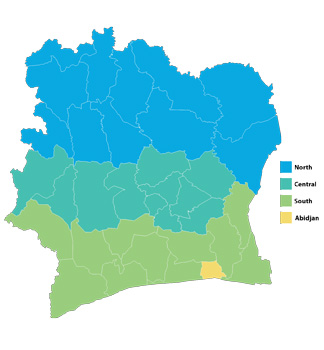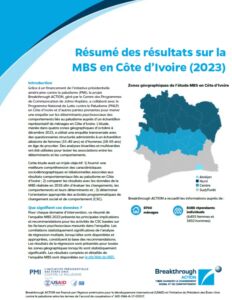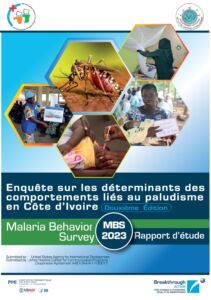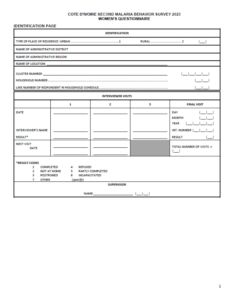Résultats par pays
The MBS was first implemented in Côte d’Ivoire from September through November 2018 and survey results were released in 2019. Through iterative survey improvements drawing on experiences in several other countries, Côte d’Ivoire fielded a second MBS from October through December 2023. Survey results were analyzed in coordination with the National Malaria Control Program and released in 2024. Both surveys were carried out by the Breakthrough ACTION project in Côte d’Ivoire in collaboration with the National Malaria Control Program, the U.S. President’s Malaria Initiative, and several other local organizations.
Zones d'étude

Survey Zones and Respondents (2023)
Key Behavioral Determinants at a Glance (2023)
des enfants de moins de cinq ans souffrant de fièvre ont reçu des soins rapides et appropriés le jour même ou le jour suivant l'apparition de la fièvre


